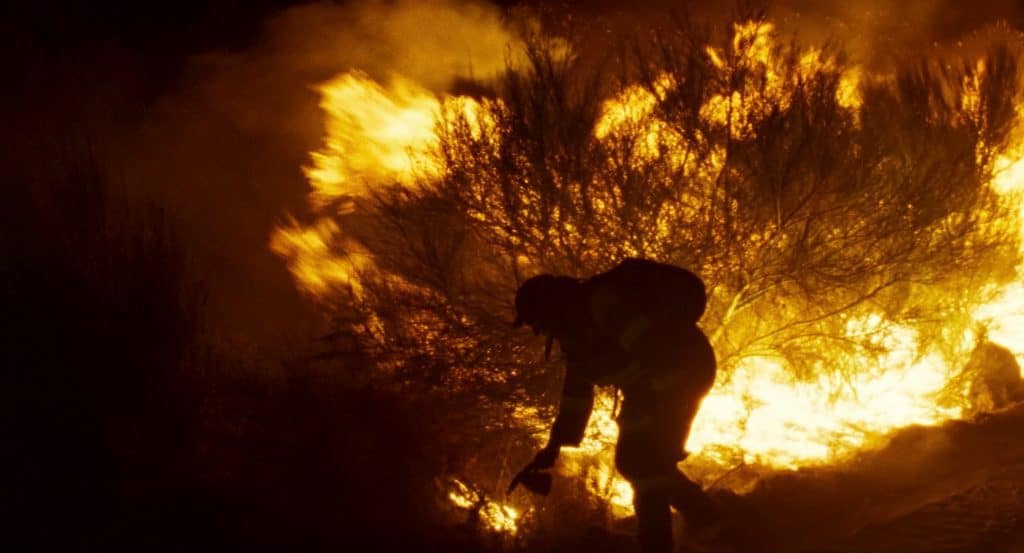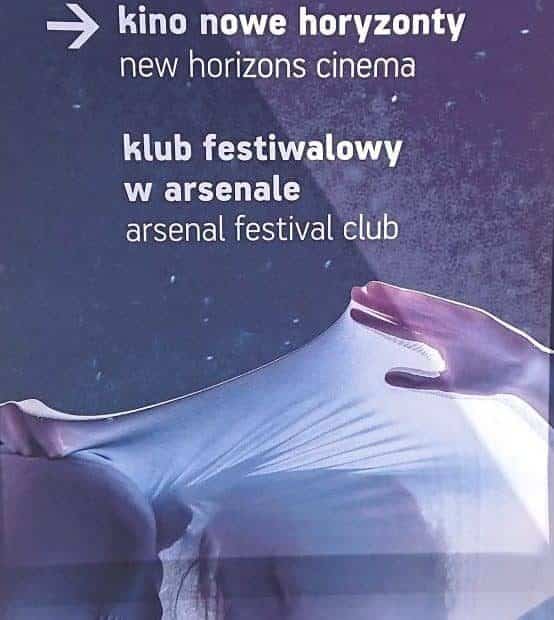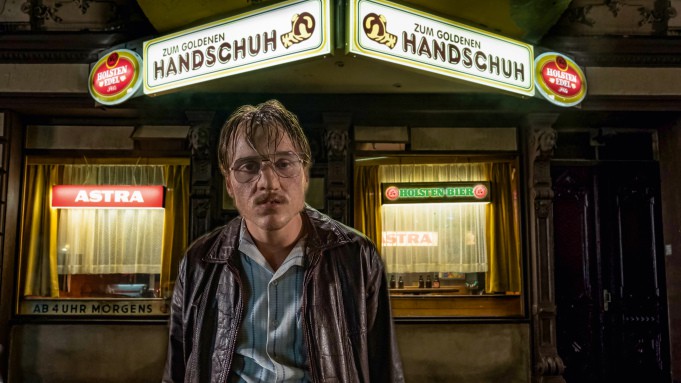The fifth day of Nowe Horyzonty started with another film from the Cannes competition. Once again, I was treated to a genre film, or rather, a weird mishmash of genres. Kleber Mendonça Filho’s Bacurau is a film set in the eponymous village, a few years in the future. I’m not sure if that is the same thing as “the near future”, where sci-fi films used to be set, but it might be. Teresa is going to the village to attend her grandmother’s funeral.
One reviewer described the village as a place that time forgot. That might be true if you don’t consider film time. Once again, we have a film that feels like a patchwork of numerous films that came before, with not much else to offer. When György Szomjas made westerns set in Hungary, they were dubbed “goulash westerns” I’m not sure what the equivalent would be in Brazil, and in any case, there are more things tossed in, such as drones and Udo Kier. The presence of the latter is rarely a good sign for those who cross his path.
The whole affair is sometimes funny, but not that original or engaging. It is also way too long. An attribute that it shares with many films of the festival, with the glorious exception of Sátántangó. Sônia Braga shines in the role of village doctor Domingas.
Bacurau

Director: Kleber Mendonça Filho
3
Pros
- Reasonably entertaining
Cons
- Not that profound.
Óliver Laxe’s first two films were set in Morocco, but for his third film, Fire Will Come (O que Arde), the location is Galicia, which happens to be his home region. Arsonist Amador (not an old-fashioned rapper name) returns home to his village after serving a prison sentence for causing a fire. He is welcomed by nobody except his mother, who has a farm. He doesn’t communicate that much and could almost have walked in from a Lisandro Alonso film.

The lifestyle of the villagers might be threatened by the modern world, as in Bacurau. Vehicles tearing down big trees, cars that seem about as natural as flying saucers in this context. However, this film can not be pared down to a single theme. It’s, above all, a piece of pure cinema. The cinematography in Super 16 by Mauro Herce is gorgeous and creates a truly immersive experience. The narrative is quite minimalistic and never forced in any way. This is one of the highlights of the festival, and in contrast to the other film that has fire in the title, it understands how to use Vivaldi. This is a contender for one of the best films of the year.
Fire will Come

Director: Óliver Laxe
Date Created: 2025-07-18 01:50
4.5
Pros
- Array
- Array
Cons
- Array
Fatih Akin’s The Golden Glove (Der Goldene Handschuh) caused quite a stir when it premiered at the Berlinale this year. It has been labelled “the most rancid film of the year” as well as “imbued with a contempt for humanity” These reactions naturally sparked my interest, but I was not able to get a ticket then. The film is ostensibly a fairly accurate depiction of serial killer Fritz Honka, who killed numerous women in the early seventies. In fact, during the closing credits, we are shown pictures of Honka’s apartment as well as images of the people involved, seemingly to prove how well the film catches reality down to the, on the nose, prosthetics.
However, the question that arises is why? What would this adaptation of the eponymous book by Heinz Strunk actually add to anything? The question remains unanswered after seeing the film. It feels oddly pointless, but on the other glove, I don’t understand the violent reactions against it either. It’s a film that is well-made, fairly engrossing, but quite forgettable. Not the first one of those from this director.
The Golden Glove

Director: Faith Akin
Date Created: 2025-07-18 01:50
2.5
Pros
- Fairly entertaining
Cons
- Pointless


